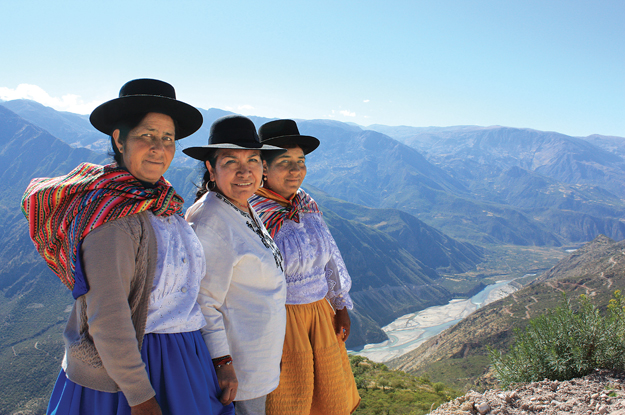In the new issue of Americas Quarterly, we asked people, “What would you tell the next U.S. president about Latin America?” To see other authors’ responses, click here.
Dear Mister / Madam President,
Indigenous communities have contributed the least to climate change, but they have suffered the most from its consequences. Extreme weather events put our sources of food and our traditional lifestyles at risk. But our problems pale before the larger global crisis that not only endangers the planet’s biodiversity but also puts every human being at risk.
As the most powerful country in the world, the U.S. has an enormous influence on the measures we will adopt over the next 20 years to adapt to and mitigate the impacts of climate change. We hope that you will include the world’s indigenous peoples in the search for solutions. As inhabitants of the forests and mountains, we believe that our capacity for survival and our traditional knowledge offer important lessons.
We recommend, as a start, that your new administration advocate for greater inclusion of indigenous peoples in global forums where agreements are made with regard to the environment. Indigenous peoples believe that our participation to date has not been sufficiently representative, given the major barriers we face in accessing the funds required to participate in meetings — those that have already been held, as well as those that are planned throughout the world over the next several years.
Information on the resolutions adopted at the yearly sessions of the Conference of the Parties, as well as on the functioning of mechanisms such as the Green Climate Fund, remains at the state level and has not trickled down to our communities. For indigenous peoples to access the appropriate information and make our voices heard as they should be — and assert our rights — our full inclusion in climate talks is imperative.
Indigenous communities should be recognized as key actors in the design, implementation and evaluation of programs that are aimed at mitigating the effects of climate change. Our input, based on the knowledge gained and technologies utilized over the course of hundreds of years, will guarantee the design of more efficient and effective strategies to protect our environment.
One way to use that input is to adopt a north-south information exchange program in which indigenous peoples from every part of the hemisphere can share their accumulated knowledge on issues such as preserving our food sources and protecting the diversity of plants and herbs that have contributed to medical and scientific progress — and make recommendations to the larger world community.
The diverse indigenous cultures of the Americas have for centuries played an important role in the development of healthy and nourishing foods and plants, to the benefit of all humanity. It would be a tragedy if this knowledge was ignored or under-utilized for resolving a crisis that affects all of us.
Don’t turn your back on Latin America.
–
Rivera Zea is one of the most recognized indigenous activists in Peru and globally. She has defended indigenous rights through her organization, CHIRAPAQ, and related institutions for 30 years and is a member of the U.M. Permanent Forum for Indigenous Issues





